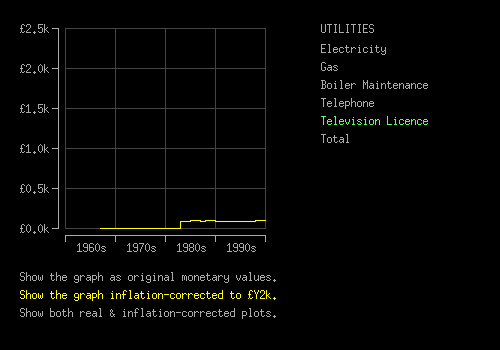Needs of The Mind
I declare the human intellect to be the most important living thing. The body is merely a vessel for the mind. If the intellect does not receive 'food' then it will die. If the intellect dies then the body has no purpose. If the body has no purpose then it has no needs. It should come as no surprise therefore to see those locked in poverty endeavouring to satisfy the needs of their minds ahead of those of their bodies. Deprived of wholesome food for one's mind, one can only strive to dull its hunger. One way to do this is with drink and drugs. Man is both a body and a mind. Food for the mind is therefore a basic human need. It is not a luxury to which the poor have no right — as mainstream society and its administrators choose to suppose.
Proper food for the mind can only come from contact with the outside world — with both nature and society. But the structure of modern society
denies us the natural channels of contact which have been freely available to all throughout most of history. In their place it has imposed its own artificial channels upon which it has also imposed a price. A price which the poor cannot afford.
With our extremely limited budget, the only form of general contact we can afford with the outside world is television. For this we are forced to pay an annual television licence fee.

As can be seen from the chart (see table for details), although it has gone up in amount paid each year, when inflation-corrected this price has in fact gradually reduced. It is not a luxury.
Television is essential if we are to be able to function even at the lowest level of engagement with the society around us. Without it, our children could take no part in conversations with their peers at school. They would rapidly become socially excluded misfits. We would know nothing of news and current affairs. We would be largely ignorant of current scientific developments, political opinions and commercial trends. We would be denied the relief of entertainment.
Even so, the passive nature of television renders it unable to meet all our fundamental needs for communication. We need an interactive element. At least some of it must be two-way.
Being cut off from direct face-to-face contact with society, the only means we have left of communicating with it interactively are therefore the telephone and the mail. But mail can never take the place of face-to-face conversation. It does not have the necessary immediacy. That is why, when given a choice, most people telephone rather than write. So although mail is a cheap means of communication, it is no longer sufficient. If we want to keep in touch with society, our only effective option is the telephone.
But, as can be seen from the following chart, the sheer cost of using the telephone was for us always a stressful problem. My inflation-corrected expenditure on the telephone over the years of running my business and my unemployment is shown in the following chart. (See table for the figures from which this chart was generated.)

We fought to reduce our use of the telephone drastically between 1992 and 1994 shortly after becoming long-term unemployed. The current cost of usage is only slightly below its level in 1976 just before I started my business. However, it must be realised that over the past two decades, society has become much more telephone oriented. It now expects people to use the telephone, whereas before, people and organisation would willingly communicate by mail.
As an example of our unemployed norm, my telephone bills for the year 1993-94 came to £467.00. Just over £80.00 of that was a fixed charge for line rental. This left roughly £387.00 worth of calls. Telephone calls cost 4·2p per unit. I therefore used about 9214 units during that year. With 220 working days a year, this works out at 42 units a day. About 90% of these were for work search. In searching for work, my calls must span the whole country. They must also be made during working hours. One standard rate unit is equivalent to 25·6 seconds of telephone time. I therefore averaged 1075 seconds (almost 18 minutes) on the telephone every working day. The monetary amounts in this paragraph are not inflation-corrected.
Each year, much of this is spent on one-off cold calls which yield no lasting benefit. I estimate that calls to people I already know amount to less than 3 minutes per working day. This allows me to make a single 10-minute call per month to each of 5 former colleagues with whom I keep in touch for the purpose of searching for business. Sadly, this time is not evenly distributed between them all and contact with two of them is slowly but surely evaporating. This level of telephone contact is grossly inadequate for keeping in touch with my potential market.
The upshot is that if I lose the telephone, I lose a vital function in the process of finding work and maintaining contact with my
social coterie. Today the telephone is no longer a luxury. It is a vital organ of social and economic communication.
Enforced Isolation
The current level of State welfare leaves me unable to afford the cost of maintaining contact with society. I have become cut off from the friends and colleagues who could point me in the direction of emerging opportunities and also provide vital corroboration as to my abilities and integrity. I have been forced into
social isolation. And so has my family.
Parent Page |
© July 1994 Robert John Morton


